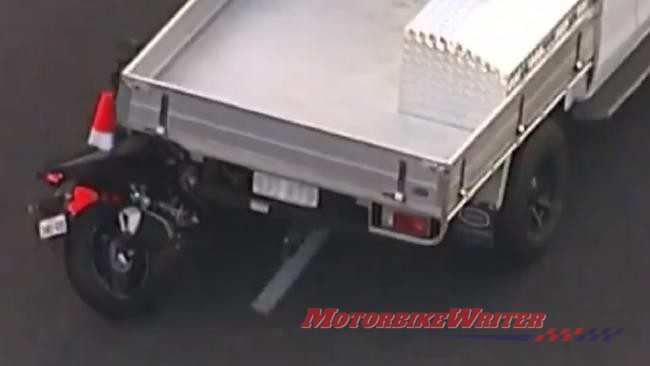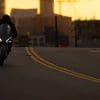Despite the motorcyclist road toll decreasing more than any other group in Australia, police and media are targeting the few dangerously high speeds of some stupid riders.
The annual road toll debate has again fired up after a very bad holiday season shattered near-historic road toll lows.
According to official data, up to the end of November, motorcyclist fatalities were down 11.6% from 241 to 213.
It was the most dramatic drop of any category, yet motorcycle registrations are the fastest growing of any category, doubling in the last dozen years.
Click here to read about the road statistics scam.
Figures for the holiday period have not yet been crunched, but they seem to reveal a dramatic spike in all road deaths.
Riders demonised

Yet, police and mainstream media in most states have trotted out the usual examples of motorcyclists riding at dangerously high speeds.
In Queensland it was a motorcyclist who rode at 192km/h through the 80km/h Airport Link tunnel.
There will always be stupid motorists in all categories. But a few extreme examples do not tell the true story.
In fact, the highest increase in fatalities was cyclists, up 15.6% (admittedly in small numbers from 32 to 37), but there doesn’t seem to be much talk about that.
If the road toll continues to climb and so much police and media attention is paid to speeding, then clearly the strategy is not working.
Political response to toll
But don’t expect politicians to do anything constructive about it, even though the Liberal Government Labor and the Labor Opposition have called for an inquiry into road safety.
Labor Party transport spokesman Anthony Albanese, who has long been a supporter of motorcycles as a solution to transport problems, cites a 50% shortfall in the $220 million pledged towards the black spot program.
Quite an important issue given so many riders have crashed in shoddy roadworks in the past few years as our roads disintegrate more and more.
Instead of rebutting the claims, Transport Minister Darren Chester simply attacked him for politicising road trauma.



